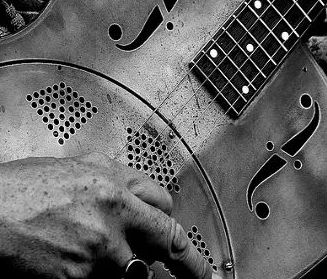The song in question dates, most likely, from the 19th Century and has had an interesting history in the tradition, both sung and in print.
A published version is known to have existed in the 1880's and was sung by vaudeville singer Dan MacCarthy. A copyright was claimed by H.J. Wehman of New York in 1881. Wehman published the song as a broadside and in the collection The Vocalists's Favorite Songster of 1885. Broadsides were street literature, cheaply published single sheets bills, which popularized songs in local communities. The broadsides were often used in similar ways to newspapers, which in turn led to a wider dissemination of songs.
But it is possible to trace things back even further. Shades of the song can be found in the British sing, Botany Bay. The famed Scottish song collector Gavin Greig (1865-1914) found three versions of this latter piece in Scotland and also in Ireland. It’s not clear how Botany Bay became The Boston Burglar, but there are features of crime, transportation and punishment shared by both songs.
Botany Bay is a tearful lament, where an unfortunate is transported to Australia for crimes unrecorded, and is aware of his fate of never seeing home or family again. Much the same for the poor Bostonian, who accepts his wrongdoing with unusually fair face.
So, we have an 19th Century Boston-based ‘badman’ song, which seems to have descended from an earlier British story. How the heck did it become located in Louisville?
Localisation is a key idea in folksong, where, for a range of reasons, songs become attached to a different location than in earlier versions. These reasons vary from ‘deliberate’ ones, where stories are changed to recount events in a particular locality, thus changing the plot, to more ‘natural’ reasonings, where singers who like and therefore perform a particular song change it to fit their own, and their audiences’ needs. A great deal of the localisation which occurs in the songs which move time and space is a result of the need to make them relatable. Singers select songs into their repertoire, and relate them to the times and places in which they are sung.
Vance Randolph, writer and folklorist, explained in his Ozark Folksongs book that "The "Louisville Burglar" song acts as a southern variant of the better known Boston-set piece (pp. 37-39), with two versions from Missouri seeing the felon bound for Frankfort town. The last two verses of the first version explain the connection to our own city, what the convicted man will do when and if he gains a reprieve, and also offer a warning not to take after him:
I loved a girl in Louisville,
A place you all know well,
An' if I ever gain sweet liberty
Together we will dwell.
Together we will spend our days,
An' shun bad company,
Quit drinkin' of cheap whiskey, boys,
While out upon a spree.
Interestingly, in the second version which Randolph reports, the boy is bound for Jefferson town, but longs to go back to his girl in Springfield, proving that localisation is at the root of many versions of traditional songs from throughout the country.
SOURCES:
http://www.mudcat.org/thread.cfm?threadid=108632
http://mudcat.org/thread.cfm?threadid=100659
Photo: Flickr/Scottrsmith



